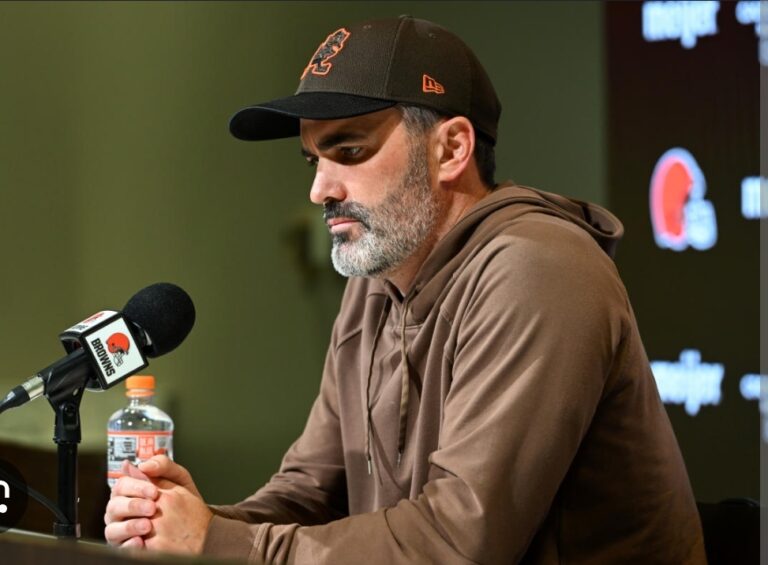Cleveland Browns’ disappointing season culminated in fervent demands for Kevin Stefanski’s dismissal. Critics argue his reluctance to relinquish play-calling duties sabotaged the team’s potential.

Stefanski’s insistence on controlling play-calling hindered adaptability. Inflexibility stifled innovative strategies, frustrating players and fans. This rigid approach raises concerns about Stefanski’s coaching philosophy.
Under Stefanski’s play-calling, the Browns’ offense stagnated. Key statistics:
1. *Decreased scoring*: 22.5 points/game (2022) vs. 18.4 (2023)
2. *Inefficient red-zone conversions*: 50% (2023)
3. *Limited explosive plays*: 10th in NFL (2023)
Players expressed dissatisfaction with Stefanski’s play-calling. Quarterback Deshaun Watson’s inconsistent performance underscored systemic issues. Talent underutilization exacerbated fan frustration.
Stefanski’s refusal to delegate play-calling reflects prioritizing personal control over collective success. This ego-driven approach raises questions about his leadership.
Peers like Sean McVay (Rams) and Andy Reid (Chiefs) successfully delegated play-calling, fostering collaborative environments. Stefanski’s reluctance contrasts sharply.
The Browns’ front office faces crucial decisions:
1. Reevaluating Stefanski’s contract
2. Exploring alternative coaching options
3. Addressing systemic issues
To reclaim contention, Cleveland must reassess Stefanski’s role. Will the Browns prioritize coaching flexibility, or perpetuate stagnation?
